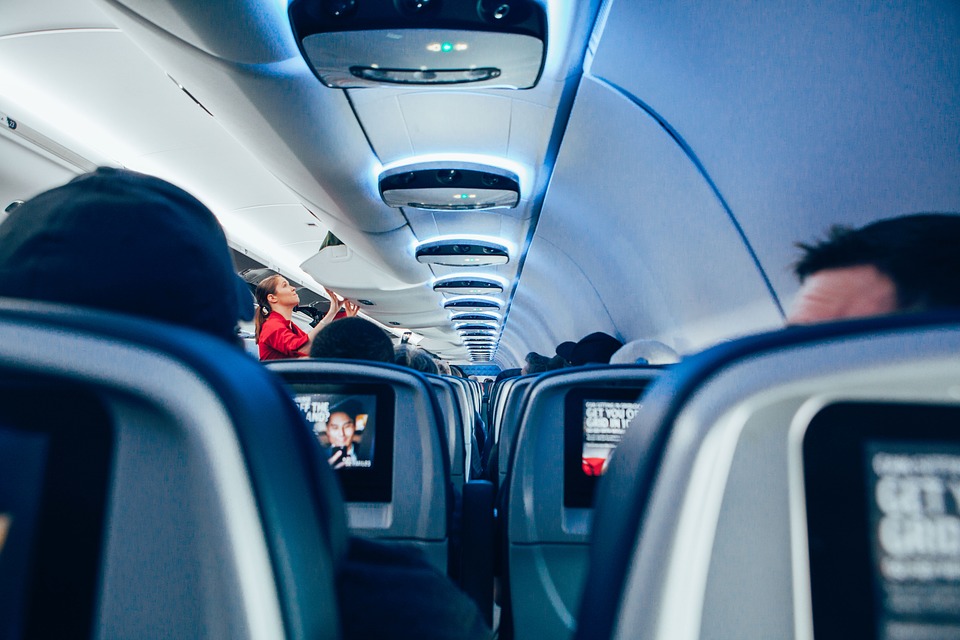Slammed by the coronavirus pandemic and facing a bruising legal battle in the UK and the U.S., Sabre on Friday dropped plans to take control of airline software vendor Farelogix, saving around $300 million in much-needed cash after deal-related costs. But the death of the deal may leave Farelogix in a vulnerable position.
Sabre had prized Farelogix for its specialty in two types of technology: software that helps airlines be smarter about what they sell, and software that helps them distribute their inventory directly to travel agencies with limited help from other third parties. Now Sabre will build its own technology.
For Farelogix, the crisis presents an opportunity to sell new services. Already “multiple” airline customers who use its tech for selling upgrades and premium seats and other products are now also using the company’s tools to help with in-flight social distancing. Airlines use the software to adjust seat maps to scatter individual travelers across a plane while enabling families to sit together.
The tech isn’t necessary to achieve social distancing, though. Other carriers are either using simple rules like blocking out middle seats or re-coding their core operational tech, the passenger service system.
“Blocking seats isn’t a new concept, but managing large numbers of blocked seats cost-effectively is,” said Farelogix CEO Jim Davidson. “We’re also talking with airlines to see how we can re-purpose our tech to help them build cost-effective flight schedules based on routes and load factors.”
WHAT NEXT, WITHOUT SABRE?
During the U.S. Sabre-Farelogix antitrust trial, testimony revealed that Farelogix had explored acquisition offers by United and American and by an undisclosed company.
How urgent is it for Farelogix to seek a buyer?
“From my point of view, and our investors’ point of view, we’re not anxious to do anything but run the company right now,” said Davidson. “I can’t predict what’s out there in interest, but we’re not feeling we have to do anything, and I’m in no hurry to do anything [in deal-making].”
“We’re certainly disappointed the Sabre deal didn’t happen,” Davidson said. “We haven’t invested in creating a global presence that we thought Sabre would have given us. But we did continue to pursue moving to cloud computing and other initiatives while waiting for regulators to okay the deal.”
Recent projects involved two undisclosed European airlines. One carrier has begun using Farelogix’s merchandising engine to power bookings on its website. The other is using the company’s tech to calculate the availability of seats without taxing its passenger service systems with customer searches.
The coronavirus pandemic has slammed Farelogix’s airline customers, but the tech vendor doesn’t expect to lay off staff. “We were already running a pretty lean organization, and we’ve not furloughed or laid off staff,” Davidson said.
About half the company’s workers focus on so-called direct connections for plane tickets and other content between airlines and travel agencies. But Davidson said the revenue and margin growth for the company was on its merchandising services.
“Up until this pandemic, the revenue numbers were showing good incremental margins for airlines that were experimenting with smarter retailing, but there’s going to be a pause on that for now,” said Davidson. “But Norwegian, for example, is planning to come back as a smaller airline with a bigger footprint of ancillary choices, and I’m assuming some other airlines will also take that view, and that could be a tailwind for the demand for merchandising engines.”
Some airlines are recognizing that merchandising is less about an add-on after someone buys a ticket, such as an upsell on a pass to an airport lounge, and more about how an airline can bundle a seat with other products and services and pitch those bundles to to particular groups of passengers. Davidson said a couple of airlines are using Farelogix’s tools to provide corporate bundles that have a series of upgrade parameters based on the corporation’s policy, the traveler’s status, and the availability of perks like club passes during certain off-peak times…



